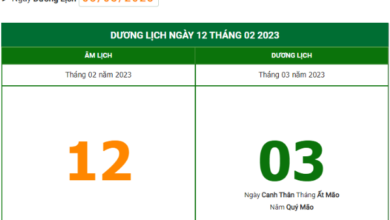The Nicolaitans Doctrine: Exploring Its Historical Significance

The Nicolaitans Doctrine holds a place in the history of religion with its importance resonating throughout the ages. This ancient belief system, frequently mentioned in writings, has sparked debates and conversations among theologians and historians. In this article we will delve into the context of the Nicolaitans Doctrine, examine its principles and assess its influence on early Christianity.
Historical Background of Nicolaitans Doctrine
To understand the Nicolaitans Doctrine one must navigate through the landscape of the Christian era. The doctrine is primarily referenced in the Book of Revelation attributed to the Apostle John. In Revelation 2.6 and 2.15 the Nicolaitans are mentioned in relation to communities in Ephesus and Pergamum during that time. Nonetheless there is evidence outside biblical texts leaving ample room for interpretation and speculation.
According to Christian writers, like Irenaeus and Hippolytus it was believed that the Nicolaitans were followers of Nicolas—a deacon mentioned in Acts 6.5. These writings suggest that they may have deviated from teachings and engaged in practices that were condemned by the early church.
Key Principles of Nicolaitans
While it remains challenging to pinpoint beliefs held by Nicolaitans, several early Christian authors attributed practices to them.
Irenaeus in his work titled “Against Heresies ” suggests that the Nicolaitans were accused of promoting antinomianism. Antinomianism is a belief system that rejects the importance of law and encourages a form of libertinism.
It’s worth noting that the descriptions provided stem from writers who viewed the Nicolaitans as deviating from the orthodox path. As a result there exists a bias in these accounts and scholars continue to debate the exact nature of the Nicolaitans beliefs.
Communities Conflicts
The teachings of the Nicolaitans caused controversy and conflict within communities. The condemnation found in the Book of Revelation indicates that these beliefs were perceived as a threat to the purity and orthodoxy of the church.
Prominent early Christian leaders like Ignatius of Antioch, Polycarp and Justin Martyr strongly opposed what they saw as Nicolaitan heresy. Their writings reflect an effort to distance emerging communities from any teachings or practices associated with the Nicolaitans.
Impact on Christianity
The doctrines attributed to the Nicolaitans played a role in shaping Christianity’s theological landscape. The vehement opposition expressed by figures such as Irenaeus and Hippolytus contributed to defining Christian beliefs and establishing doctrinal boundaries.
The early Christian leaders faced challenges from Nicolaitan influences, which led them to emphasize the importance of behavior and adherence to established teachings. This focus on orthodoxy and morality played a role in bringing a united Christian identity amidst various theological perspectives.
Legacy and Interpretations
Despite its significance the Nicolaitan doctrine remains shrouded in mystery. The lack of evidence from the Nicolaitans themselves makes it difficult to fully understand their beliefs and practices. As a result scholars have varying interpretations of the Nicolaitan doctrine sparking discussions.
Some modern scholars suggest that condemnations of the Nicolaitans may have been driven by political factors within Christian communities. Others argue that the Nicolaitans were misunderstood with their beliefs being misrepresented by their opponents.
Conclusion
The enigmatic nature of the Nicolaitan doctrine serves as a reminder of the complexities surrounding history. While we may not know precisely what the Nicolaitans believed, their influence on shaping views and defining identity should not be underestimated. As scholars delve deeper into evidence and offer interpretations we continue to uncover intriguing aspects of early Christian thought through examining the Nicolaitan doctrine.



